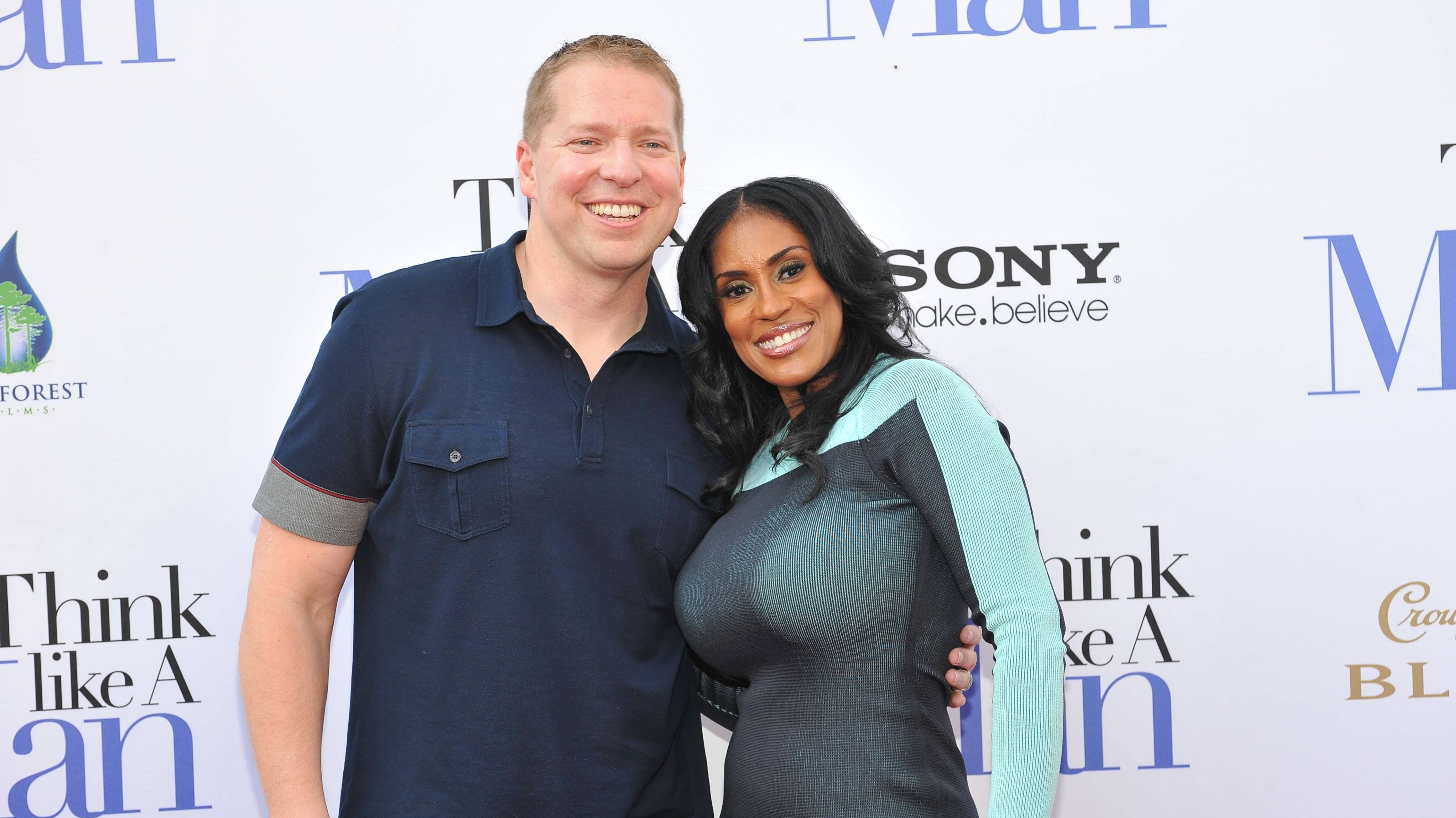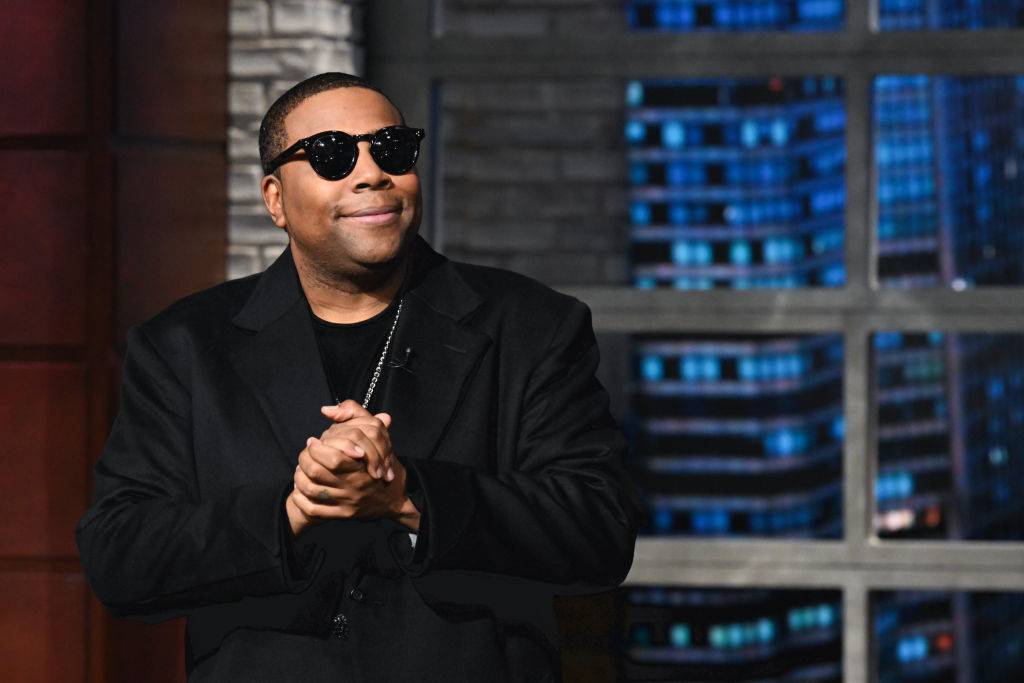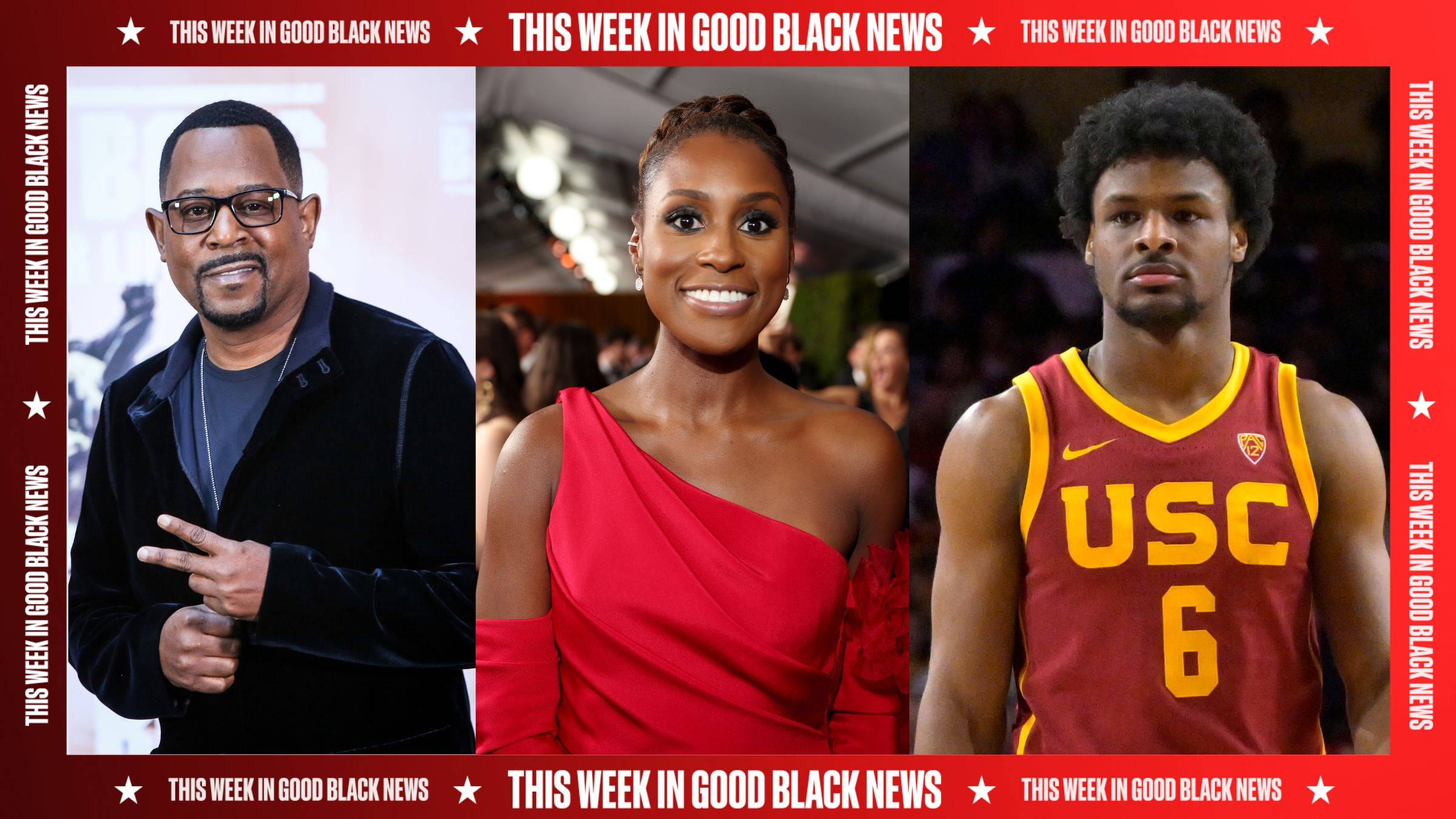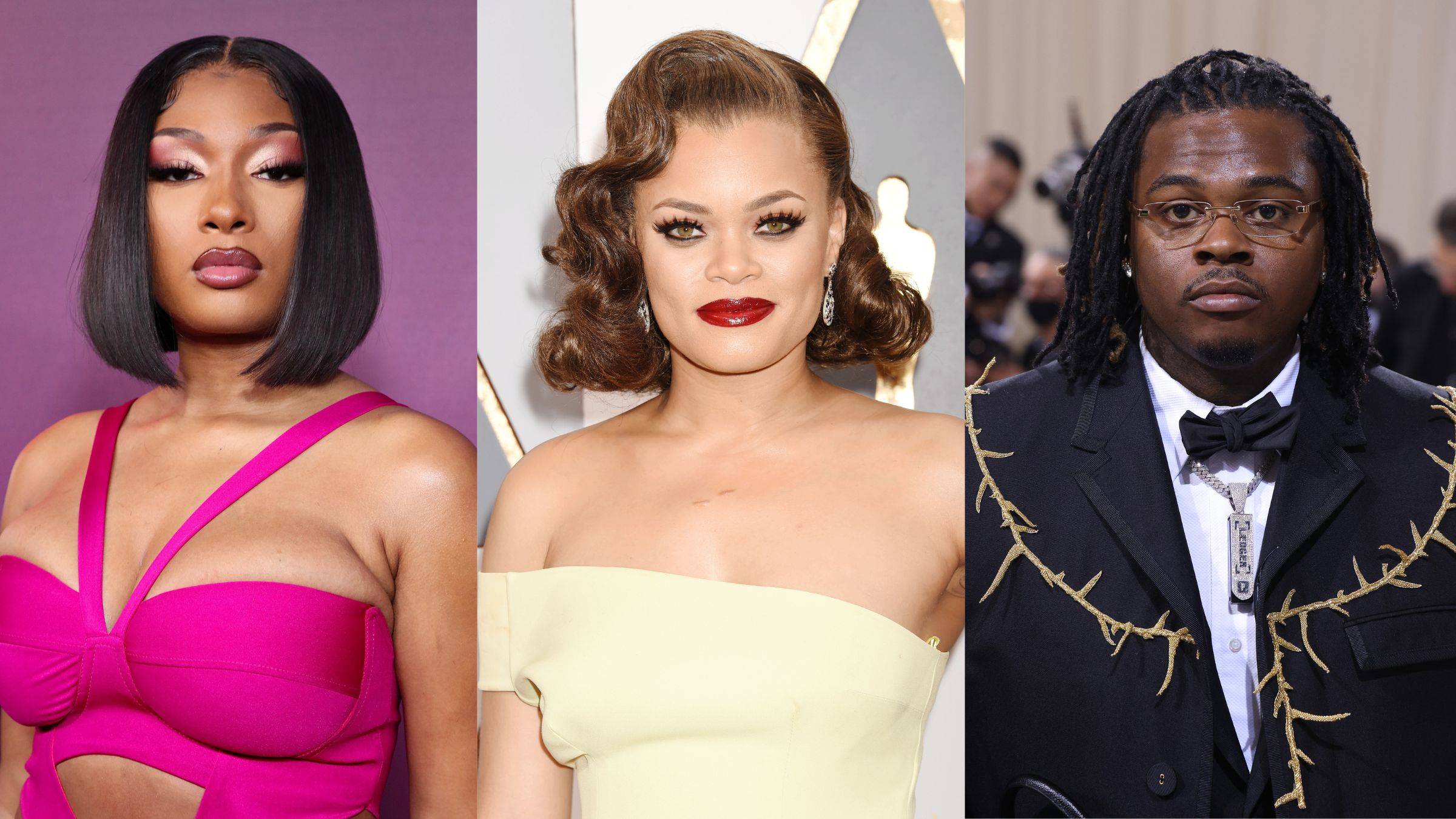A New 'Native Son' Challenges The Monolith Of Blackness In America [EXCLUSIVE]

Déjà vu comes standard when you are watching the second film adaptation of a celebrated work of fiction like Native Son. However, seeing Ashton Sanders’ Bigger Thomas stroll into a Chicago record shop looking for a copy of Bad Brains vinyl felt like an Earth 2 reimagining of Larenz Tate’s love-bitten scribe, Darius Lovehall from Love Jones, getting his fingers dusty trying to impress Nia Long. While the comparisons between the two films stop at locale, director Rashid Johnson—a Chicago native—finds my parallel intriguing.
“I loved the movie Love Jones. You’re talking about when Larenz Tate goes into the record shop? That’s a really interesting observation. It wasn’t something I thought of consciously but I definitely loved that movie as a young person and it still sticks with me."
The present-day Windy City is as much a character as a setting in this new film based on the 1939 novel about a young Black man named Bigger Thomas, who squanders an opportunity to escape the trappings of poverty by committing a heinous crime. Unlike the first adaptation from 1986 starring Victor Love and Oprah Winfrey, this new version takes place in present day Chicago with some key tweaks to the story.
“I placed the film in an unexpected way in Chicago,” says Johnson, a celebrated visual artist who partnered with veteran playwright Susan-Lori Parks on the script. “We changed the direction of the film from being hosted in the book in the South Side to being on the North Side, which goes along with the exploration of the diversity of the communities that you’re often exposed to. More often than not we associate the Black experience in Chicago with the South Side or West Side. But I’m a brother from the North side so…”
An avatar for that diversity, Bigger Thomas in 2019 has green hair and black painted fingernails that clutch a leather jacket emblazoned with the words “freaking out” across the back. The aesthetic is very Afro-Punk, and it’s just one of the very deliberate ways that Johnson and Parks push the envelope in this retelling. Bigger is in love with Bessie, played with a seductive cool by Kiki Layne, who shrugs off the demure naivete of Tish, her character in If Beale Street Could Talk. The two actors are longtime friends who attended DePaul University together as undergrads and had a brief reunion in the sci-fi thriller Captive State, but set a match to the screen with undeniable chemistry in Native Son.
“I knew they knew each other going into the project and hoped I’d be able to use some of their familiarity as a tool,” says Johnson. “But I was blown away by how strong their chemistry was and how genuine their bond is as people. It comes across in such an honest way in the film.”
BET.com went in-depth on the recreation of Richard Wright’s polarizing novel with Rashid Johnson, Ashton Sanders, Kiki Layne and Sanaa Lathan, who plays Bigger’s mother, Trudy.
BET: In your opinion, what does it mean to be a native son or daughter?
Rashid: The first time I heard the words it was associated with Richard Wright, and I’ve never been able to take it away from him. I’ve Googled the words and you see news stories, and it’s usually someone who is deeply embraced by a place. And it’s usually something someone will use to describe someone else. It’s rarely something people use to describe themselves. They don’t usually say, "I’m a native son." The community claims this character as a collective. It’s quite challenging for me to use it myself.
Kiki: You’re born being Black in America and constantly walking around feeling like you’re NOT one of the country’s native sons or native daughters. That’s what stands out to me about that. The struggle of NOT feeling that native connection.
Ashton: Maybe the term native son is kind of sarcastic. This is home, but it isn’t home. I should feel like I belong here, but I don’t. And if we’re going in that direction, that stems well with the themes of our film. Bigger being born into this place that he should know, like Chicago, for example, that he should know and feel comfortable in. Or being born in America and still carrying around these anxieties and all of these fears, all of this pressure of being a Black man in his native home.
Talk to me about how this film challenges the notion of Blackness. Bigger is in a record store shopping for Bad Brands, not Biggie Smalls, and has green hair, among other things, and is challenged on his Blackness by his peers.
Kiki: There are Chicagoans who dress like that and listen to that type of music, but especially in media, you don’t see it. If we are talking about Black people in Chicago, there is a very specific way that we’re portrayed, and I think that is one of the beautiful things about this film. It’s unfortunate that people will find this kind of strange, but there are Black people living like that. I feel like that can help some people be more comfortable if they don’t quite fit into the lines of what media has said we should be listening to or dressing like.
Ashton: I totally agree. Both Bessie and Bigger are radical Black characters, a radical retelling of this story. We have these Afro-Punks in society, like Kiki was saying, [but] we only see the Black man acting like this, same with the Black woman. This narrative was important in that regard to show other types of Blackness in the world. And I think this is the first time we see an Afro-Punk kind of aesthetic in cinema as the leading man. Especially with a project that’s supposed to be so straight edged. I think we’re rebelling in that name, but we did it in the right way where people are still going to be able to see themselves in Bigger, although they don’t see themselves.
Kiki: I think it’s powerful, too, seeing this struggle he has in not fitting into anybody’s norms. He’s not fitting into white spaces and you’re not fitting into Black spaces and what THAT does to you. Because you talk about that anxiety and fear that then stems from that, and you’re trying to be truthful to yourself, but when the homies get in the car you’re playing Blue Face…
Ashton: Knowing deep down you f*ck with Paramore... which is totally fine. I feel like there’s these themes of social mask that I do in my films. Like Moonlight, walking around with a social mask. There were a lot of people in Bigger’s life doing that around him. So, I think that’s really interesting how fear drives us to put on this protective armor. Like damn, I can’t truly be myself. Although I feel like I’m myself with ya’ll, I don’t truly feel like myself with y’all.
Rashid: I was interested in Bigger facing several different kinds of obstacles. And one of those obstacles was something that a lot of Black folk face throughout adolescence, this expectation of what one’s Blackness is and can be. And those obstacles can come from any number of different directions. Whether its white folks saying, ‘Oh, you’re different from other Black people I know.’ Or Black folk questioning the authenticity of your Blackness during certain engagements. Or whether it’s used as a tool to question your masculinity, which is part of Bigger’s engagement with Jack in our telling of it. Blackness again, and it’s strange that we continue to have to discuss it this way, is not monolithic. There are several different ways of being a Black person. And Bigger just happens to be invested in different kind of cultural concepts and ideas and concerns that don’t in any way take away from the quality of his Blackness, in my opinion.
Sanaa: I loved the fact that you guys took him out of the archetype version of Bigger. That was exciting to me. That says so much about who we are as Black people. There is no one Blackness. We look like so many different things and we have so many different points of view, but yet we are still Black in America. And systematic oppression and racism plays in here…
Rashid: On a loop…
Sanaa: Yes, it’s there. And I thought that was beautiful visually to see that he was such an individual and not an archetype of what we’ve seen in film, and yet it almost kind of highlights the power of that systematic oppression.
How familiar were you with the book, and how do you feel about the changes made?
Kiki: I had read it for the first time back in high school, and it went over my head. I ain’t know what Richard Wright was talking about on a deeper level, what is he really saying to me about Black experience. So, coming back to it in preparation for the film I was like, "I get it." And I got why some people didn’t really like it. But I love what we did with this adaption. Susan-Lori and Rashid filled out these characters’ humanity in a way that I don’t think Wright did in the book. Just really creating these full human beings and getting a clearer sense of what they were going through.
Rashid: My mother gave me the book when I was about 15 years old. She gave it to me with the caveat that this was a really challenging story. It blew me away. Like so many people before and after me, it changed something in me when I read it. And it stuck with me ever since. Thinking about that character has always been on my mind and thought he’d be interesting to see in contemporary terms.
This is Rashid’s first time directing a feature, what was he like to work with?
Ashton: He was very collaborative, and he trusted us with the characters. That’s important as actors to have that freedom. It was like a dance, an ensemble performance. We were all just filling in the spaces and respecting each other and what we were creating.
Sanaa: In a way, he wasn’t a first-time director. Maybe in this particular format, but he was such an accomplished visionary and had such a point of view and obviously so intelligent and thoughtful, I knew there was a reason why he got Susan-Lori to write it, I’ve done her plays back in the day. Once I got on set I was really impressed by how sensitive he was and let us play. The best thing a director can give you on a set is that kind of trust. If they’re confident you feel confident, and he really created a great atmosphere. We shot all of my scenes in one week in this apartment with the three kids, so it felt like our own little movie. It was great because we got to bond and it felt natural. This is definitely part of his destiny.
Why do you feel this story is still so relevant?
Rashid: That’s the challenge. That’s the thing that’s really pressing. It’s both enlightening but frustrating and sad. You can take a story from 1939 that ends as tragically as it does for its protagonist, you can tell it today and not feel like you’re skipping a beat. The dichotomy between the 1939 telling and the story being told today, that space in between is the space that I’m most invested in exploring. The things that are different; that Bigger does have more agency, does have more opportunity, does have a different sense of chance and things haven’t changed. He finds himself in a position where he thinks that because of the condition of his Blackness that he has no choice but to make the decisions that he makes. Even though he’s such an individual, yet his individuality is erased by the systemic, overarching concerns that he has when he finds himself in the position he’s in.
Kiki: I think this story, especially with our adaption, leans into the fear and anxiety Black people constantly carry with us when we feel like we don’t quite fit in anywhere. You’re never quite in a place that you’re supposed to be. I think that’s a real thing no matter what year it is. Struggling with that in a society that makes you question your value and makes you feel like you are a threat while at the same time you are constantly feeling threatened.
Ashton: Whether it’s the 1930s or 2019 or the 1800s, we’ve been dealt a certain type of living situation since the beginning. All of that evokes anxiety and fear. We’re still dealing with the same emotional trauma that could be PTSD from our ancestors. It runs deep. Unfortunately, it’s sad that America hasn’t changed. Race relations haven’t changed in that way. And this film is a slap in the face to that. It’s like a beautiful tragedy. And I think that’s a real driving force to why the energy on set was the way it was and why we all signed on to this film. This shit is really important.
Native Son airs on HBO Saturday, April 6.





